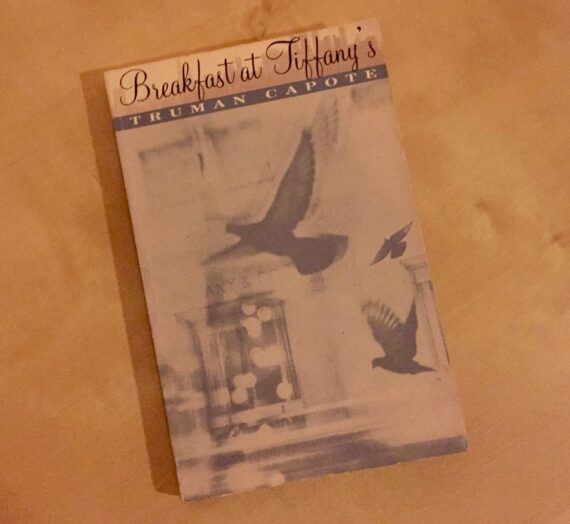Chandler Baker’s 2019 novel Whisper Network explores the timely issue of sexual harassment and assault in the workplace. Additionally, the book addresses a variety of other challenges that modern women face today when it comes to careers, motherhood, friendships, and family life.
Like Where the Crawdads Sing and The Light We Lost, Whisper Network is also a pick from Reese’s Book Club x Hello Sunshine.
The purpose of our Book Club Guides is to recommend books for your book club and provide guidance for discussion. This book guide focuses on Whisper Network by Chandler Baker.
Review: Plot, Pros and Cons
Whisper Network focuses on a handful of women working at Truviv, Inc., a large athletic brand similar to Nike or Adidas, and their experiences with sexual misconduct there (as well as a host of other issues facing working women today). The main characters are lawyers and executives Sloane, Ardie, and Grace, as well as Rosalita, who is on the cleaning staff.
At the start of the novel, Truviv’s CEO dies, leaving an opening for a new head of the company. This causes a stir among the employees, and it’s quickly rumored that an executive named Ames will be the next one in charge. However, talk of Ames’s sexual behavior has been quietly rippling throughout the company. Throughout the course of the story, we learn this ranges from consensual relationships to sexual assault. The whispers about Ames only grow louder until the story erupts into chaos.
While they may have different roles at Truviv, Sloane, Ardie, and Grace, and Rosalita are all working mothers. The story explores their different experiences balancing work with raising children. This ranges from Grace, who has to pump breast milk during the day to feed her newborn at home, to Sloane, whose daughter is struggling with bullies at school.
Whisper Network also employs a couple different narrative and structural devices. Throughout the novel, the story is told from the perspective of the book’s female characters. The story is told from the perspective of we, us, our, etc., clearly demonstrating whose tale it is to tell. Additionally, the novel switches back and forth from depositions given by Truviv employees and the group narration of the story. So, throughout the novel the reader knows that a death and court case are coming in the end.
Discussion Topics
- The novel addresses the various professional challenges women must overcome, including having less time. The collective narration brings up that women have less time than men during the day because of obligations to look great (doing hair and makeup, for example) or take on childcare duties that men can’t (like pumping breast milk, for instance). How does this lack of time put more pressure on women professionally? What can be done about it?
- The book reads, “Everything was about work, even the things that weren’t: Would we continue to work after children? Would we put our work goals ahead of having a family? Were we working enough? Were we working too much? Were we being paid the amount our work was worth? What were we doing this weekend, did we want to have brunch or did we have to work?” Do you agree that everything is about work? Why or why not? Do you have experience dealing with these questions posed in the book? What did you do?
- The novel says, “A man could say he was taking the day to go fishing with his son, while a mother was usually better off hiding the fact that she took a long lunch to run her child to the doctor’s office. Children turned men into heroes and women into lesser employees, if we didn’t play our cards right.” What do you think of this double standard of parenting? Have you (or someone you know) ever experienced it at work or personally? What happened?
- Sexual misconduct in the workplace is the main focus of the book and has dominated recent headlines. The #MeToo movement has helped survivors speak up about the sexual harassment and assault they’ve endured. However, in the book and in reality, there are always people who don’t believe those that have spoken up — they say the women and men who share their stories only want recognition or to destroy the life of the accused. What do you think? Is speaking up about sexual misconduct mostly helpful or should these accusations be handled differently? Do you tend to believe women (and men) or not? Why? How has the #MeToo movement changed the workplace today?
- What did you think of the narrative structure of the book — namely the use of we, us, our, etc. to tell the story?
- What is the “whisper network?” What is its function? Does it work?
- What did you think of the ending of the book? Were you surprised? Why or why not? What do you think happens next?
- In the author’s note at the end of the book, Baker discusses her personal experiences and how they informed her writing. Did this note change your opinion of the story at all? Why or why not?
In Conclusion
Overall, Whisper Network is a compelling read that addresses a variety of topical issues. From sexual misconduct to professional challenges to motherhood, there are plenty of discussion topics bound to keep your book club chatting.
Have you read Whisper Network? What did you think of it? Let me know in the comments!
Happy reading! Cheers!







Donna Henry
Our book club is discussing this book tomorrow evening. The club is comprised of women aged 30-75; it will be interesting to see what everyone thought of it and if age has any bearing on their opinions. I enjoyed reading the book although I really did not find any of the characters to be very likable. It was definitely more plot-driven than character-driven. However, the timeliness of the subject matter was good, and I had to think about the motivations of the characters throughout which was good. Overall, I enjoyed it.
Carly
That sounds like it will be an interesting meeting! I totally agree — enjoyed the book and the relevance of the plot, but not always the most likable cast of characters. Enjoy your book club!